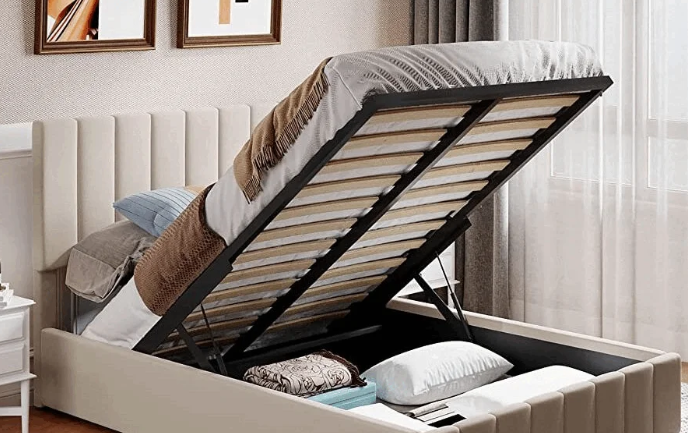Hardwood floors are renowned for their timeless elegance and durability, making them a popular choice among homeowners. However, even the most well-maintained floors can suffer occasional damage, such as dents. Whether caused by heavy furniture, dropped objects, or accidental impacts, dents can mar the beauty of hardwood floors. Fortunately, there are several effective techniques and solutions available to restore dented hardwood floors. In this article, we will explore the causes of dents, discuss preventative measures, and provide practical steps for repairing and revitalizing your dented hardwood floors.
Table of Contents
Understanding the Causes of Dented Hardwood Floors
Dents on hardwood floors can be attributed to various factors. The following are the most common culprits:
Heavy furniture: Placing heavy furniture pieces directly on hardwood floors without proper protection can cause significant dents over time. The concentrated weight and pressure exerted by these objects can compress the wood fibers beneath, leaving noticeable impressions.
Falling objects: Accidental drops of heavy items, such as tools, kitchenware, or toys, can create sudden dents on hardwood floors. The impact of the falling object on the wood surface can cause immediate damage.
High heels and pet claws: Stiletto heels and sharp pet claws can also dent hardwood floors, especially if they are repeatedly dragged or scratched across the surface. These pointed objects can penetrate the protective finish and leave permanent marks on the wood.
Preventative Measures for Dented Hardwood Floors
Prevention is key when it comes to maintaining the pristine condition of your hardwood floors. By taking the following precautions, you can reduce the likelihood of dents and prolong the life of your flooring:
Protective pads: Attach felt or rubber pads to the legs of furniture pieces to distribute weight evenly and prevent concentrated pressure points. Regularly check and replace worn-out pads to ensure optimal protection.
Area rugs and mats: Strategically place area rugs or mats in high-traffic areas and beneath furniture to provide an additional layer of cushioning. These rugs can absorb the impact of heavy objects and reduce the risk of dents.
Shoe policy: Implement a shoe policy in your home to minimize the potential damage caused by high heels or shoes with sharp edges. Encourage family members and guests to remove their shoes upon entering to prevent dents and scratches.
Pet care: Trim your pets’ nails regularly to minimize the risk of them scratching or denting the hardwood floors. Place rugs or pet mats near entryways to help collect dirt and debris from their paws, reducing the chances of abrasive particles damaging the surface.
Repairing Dented Hardwood Floors
If your hardwood floors have already sustained dents, don’t worry! There are several methods available to repair and restore their original appearance:
Steam treatment: For shallow dents, steam treatment can be an effective solution. Use a steam iron or a damp cloth and apply heat to the dented area, allowing the moisture to penetrate the wood fibers. As the wood absorbs the moisture, it swells, often reducing or even eliminating the dent. Be cautious not to overheat or leave the steam iron in one spot for too long, as excessive moisture can cause damage.
Heat and water technique: This method is suitable for more stubborn dents. Place a clean, damp cloth over the affected area and use an iron set to medium heat to apply pressure and heat simultaneously. The combination of moisture and heat helps to expand the wood fibers, gradually reducing the dent. Repeat the process as necessary, checking the progress frequently to avoid overexposure.
Wood filler: For deeper dents that cannot be repaired using the steam or heat methods, wood filler can be an effective solution for wood floor repair. Start by cleaning the dented area, ensuring it is free from debris and dust. Then, apply a wood filler that matches the color of your hardwood floor to the dent, using a putty knife or a spatula. Smooth the filler over the dent, ensuring it is level with the surrounding surface. Allow the filler to dry according to the manufacturer’s instructions, typically for several hours or overnight. Once dry, lightly sand the filled area with fine-grit sandpaper to achieve a smooth finish. Finally, clean the area and apply a protective finish or stain to blend the repaired section with the rest of the floor.
Board replacement: In cases where the dent is severe or the wood is irreparably damaged, the best solution may be to replace the affected board entirely. This method requires more time and expertise but can yield excellent results. Start by carefully removing the damaged board using a circular saw or a chisel. Take precise measurements of the removed board and obtain a replacement board that matches the species, grade, and finish of the existing flooring. Install the new board using appropriate nails or adhesive, ensuring it fits securely and aligns with the surrounding boards. Once installed, sand and finish the replacement board to match the rest of the floor, blending the repair seamlessly.
Summary
Dents on hardwood floors can be an eyesore, but with the right techniques and preventative measures, you can restore their beauty and preserve their lifespan. By understanding the causes of dents and taking proactive steps to prevent them, such as using protective pads, area rugs, and implementing shoe policies, you can significantly reduce the risk of damage. In the event of dents, various repair methods, including steam treatment, heat and water techniques, wood fillers, and board replacements, can effectively address the issue. Remember to always exercise caution and follow the manufacturer’s instructions when attempting repairs. With proper care and maintenance, your hardwood floors will continue to provide a stunning and durable foundation for your home, ensuring that their timeless beauty withstands the test of time.



